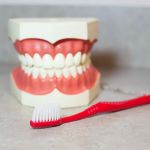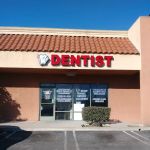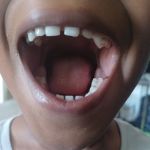The Importance of Milk Teeth for Speech Development: A Comprehensive Guide
- Understanding the Role of Milk Teeth in Early Childhood Development
- How Milk Teeth Impact Speech Development
- Speech Delays and Their Link to Milk Teeth
- Proper Care for Milk Teeth to Support Speech Development
- Real-Life Stories: The Impact of Healthy Milk Teeth on Speech Development
- Professional Advice on Milk Teeth and Speech Development
- Products to Support Healthy Milk Teeth and Speech Development
1. Understanding the Role of Milk Teeth in Early Childhood Development
Milk teeth, also known as baby teeth, are the first set of teeth that appear in infants, typically around the age of six months. These teeth serve an important role beyond just helping children chew food. They play a crucial part in the development of speech, as they are essential for proper articulation and forming sounds as children begin to communicate.
2. How Milk Teeth Impact Speech Development
2.1 Facilitating Clear Pronunciation
Milk teeth provide the foundation for clear pronunciation by allowing children to form specific sounds. The presence of these teeth helps children pronounce words correctly and clearly. Missing or delayed milk teeth can lead to challenges in speech clarity, making it more difficult for children to speak properly.
2.2 Supporting Tongue and Lip Movements
Speech development also involves the movement of the tongue and lips. Milk teeth guide the tongue's movement, which is critical for forming sounds such as “t,” “d,” “s,” and “z.” Without healthy milk teeth, children might struggle with certain speech sounds, resulting in speech delays or unclear communication.
3. Speech Delays and Their Link to Milk Teeth
3.1 Delayed Tooth Eruption
If milk teeth erupt later than expected, it can affect a child's ability to pronounce words properly. Speech delays can occur if a child is unable to use their teeth to form the correct sounds at the appropriate developmental stage. This is why monitoring the timing of tooth eruption is essential for early speech development.
3.2 Impact of Missing Milk Teeth
Missing milk teeth, whether due to early loss or other issues, can hinder speech development. A gap in the teeth can prevent proper articulation and might lead to speech patterns that are hard for others to understand. This can be addressed with early dental intervention to prevent long-term speech problems.
4. Proper Care for Milk Teeth to Support Speech Development
4.1 Brushing and Oral Hygiene
Maintaining proper oral hygiene is crucial for healthy milk teeth. Brushing the teeth twice a day with a fluoride toothpaste and using a soft-bristled brush ensures that the teeth stay free of plaque and decay, supporting overall health. Proper hygiene helps children keep their milk teeth for as long as they are needed to develop healthy speech patterns.
4.2 Regular Dental Check-ups
Regular visits to the dentist allow for monitoring the development of milk teeth and ensuring that there are no issues, such as cavities or misalignment, that could hinder speech development. A dentist can also provide guidance on the right steps to take if speech delays or dental concerns arise.
4.3 Early Intervention for Speech Issues
If speech delays are detected, it’s essential to address them early. Working with a speech therapist can help children overcome articulation issues. In some cases, dental professionals and speech therapists work together to ensure that children’s teeth are in the best condition for speech development.
5. Real-Life Stories: The Impact of Healthy Milk Teeth on Speech Development
Take the case of Emma, a 3-year-old who had difficulty pronouncing certain sounds. After a visit to the dentist, it was discovered that some of her milk teeth were not fully formed, affecting her speech. With professional dental care and speech therapy, Emma was able to develop clearer pronunciation, highlighting the crucial link between healthy teeth and proper speech development.
Another example is Tom, a 4-year-old whose speech was delayed due to missing milk teeth. After receiving dental treatment and guidance from his pediatric dentist, Tom’s pronunciation improved significantly, demonstrating how timely dental care can positively impact a child's speech development.
6. Professional Advice on Milk Teeth and Speech Development
Dental professionals emphasize the importance of milk teeth in speech development. According to Dr. Sarah Thompson, a pediatric dentist, "Healthy milk teeth are essential not only for proper chewing but also for developing speech clarity. Children need their teeth to form the sounds of speech effectively." Regular check-ups and early intervention, she says, can prevent many of the speech issues that arise from dental problems.
7. Products to Support Healthy Milk Teeth and Speech Development
To support the development of healthy milk teeth, using the right oral care products is essential. Toothbrushes designed for young children, fluoride toothpaste, and teething gels can all play a role in maintaining healthy teeth. At Dentistry Toothtruth, you can find products that are specifically formulated to help children achieve optimal dental health, which in turn supports their speech development.







 Smiles 'R' Us Dentistry4.0 (254 review)
Smiles 'R' Us Dentistry4.0 (254 review) First Choice Dental- Madison East4.0 (289 review)
First Choice Dental- Madison East4.0 (289 review) Lincolnshire Dental Care4.0 (154 review)
Lincolnshire Dental Care4.0 (154 review) Advanced Dental Care of Riverdale4.0 (339 review)
Advanced Dental Care of Riverdale4.0 (339 review) Baldwin Park Family Dentistry4.0 (16 review)
Baldwin Park Family Dentistry4.0 (16 review) South Bay Children's Health Center5.0 (106 review)
South Bay Children's Health Center5.0 (106 review) The Importance of Oral Health Education During Pregnancy for a Healthy Pregnancy
The Importance of Oral Health Education During Pregnancy for a Healthy Pregnancy Best Tips for Brushing Your Teeth Properly for Healthy Gums: Essential Techniques for Oral Health
Best Tips for Brushing Your Teeth Properly for Healthy Gums: Essential Techniques for Oral Health Why Skipping Dental Checkups Can Lead to Bigger Oral Health Problems
Why Skipping Dental Checkups Can Lead to Bigger Oral Health Problems Advantages of Porcelain Dental Restorations
Advantages of Porcelain Dental Restorations How Can Diabetes Cause Tooth and Gum Problems? Preventing and Managing Oral Health Issues
How Can Diabetes Cause Tooth and Gum Problems? Preventing and Managing Oral Health Issues Healthy Habits for Promoting Good Oral Health and Hygiene: Tips for a Healthy Smile
Healthy Habits for Promoting Good Oral Health and Hygiene: Tips for a Healthy Smile